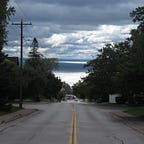One thing that I’ve noticed in the past several years is that people are labeling events that are not cases of genocide and interchangeably use the term ethnic cleansing to mean the same thing. The definition of ethnic cleansing is to remove, imprison, or killing a someone due to their ethnic background in order to make one’s own ethnicity homogenous in the area. This however, can lead up to a genocide taking place. Genocide is when there’s a campaign to fully exterminate a group of people because of their ethnic, religious, political, or cultural belonging.
The question is, “why are people labeling events as genocide even though they are not?” My answer is that it varies to either they’re misinformed and lack the proper education of the topic, or they obfuscate the meaning of the word for ideological reasons. To paraphrase what my history professor told me during fall semester 2019, just because there were massive casualty rates, it doesn’t mean that a genocide took place. Mass death can be caused by ineptitude by the ruling party, carelessness, and military conquest isn’t always a genocide or an act of ethnic cleansing, it’s jus an extremely tragic aspect of reality. An observation that is to be made of labeling these events as genocide is that it’s an effective emotional tool to attract supporters to one’s ideologically agenda. Being poorly educated on the topic can lead people to misuse the word and label events as being genocidal as a result.
To counter someone falsely labeling an event as being a genocide, one should bring up the fact that when a genocide takes place, the population of the targeted group drops sharply, or completely flatlines. Also, paying attention to the intent of those who are involved in committing such violent acts as well. You should also bring up events that are actual genocides that took place. They include the Genocide of the Herero & Nama from 1904–1908, the Holodomor, the Holocaust, the Rwanda Genocide, and the Armenian Genocide. It should also be noted that past genocides often borrow from each other as well. An example is being the fact that most of the racial theories espoused by the Nazis originated from the 1904–1908 genocide of the Herero and Nama in what is now the modern African nation of Namibia.
Countering such distortions is of extreme importance especially in today’s day and age, which is plagued with the rapid spreading of misinformation and conspiracies. All in all, I hope you, the reader of this piece, will take something of importance away after reading this and willing to be educating people on how to have truthful understanding of the meaning/definition of the word genocide.
